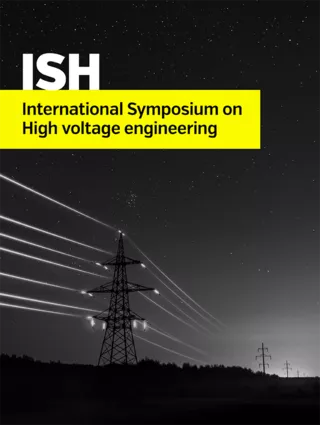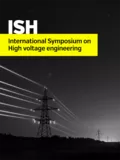Summary
The barrier effect is well known and widely used in the field of high voltage engineering. Barriers can significantly increase the withstand voltage of electrode configurations which has been well documented in literature over the past 85 years. According to the Max-Roser Model, the barrier effect can be explained with a redistribution of the electric field in the gap. This happens due to a space charge field formed on the barrier with charges originating from ionization at the high voltage electrode. Thus, the conductivity of the barrier has a large impact on the barrier effect which was shown by experiments in a recent publication [1]. In the publication, a theory for the reason was also presented. The aim of this paper is to analyse the theory from [1]. A rod plane arrangement with a single barrier whose surface resistivity was decreased systematically was investigated. Furthermore, a new simple simulation method for streamer inception and propagation was developed to theoretically back up the experimental results. The decrease of the breakdown voltage of the arrangement with decreasing surface resistivity could been shown for positive lightning impulse in experiment and simulation.
Additional informations
| Publication type | ISH Collection |
|---|---|
| Reference | ISH2017_225 |
| Publication year | |
| Publisher | ISH |
| File size | 562 KB |
| Pages number | 6 |
| Price for non member | Free |
| Price for member | Free |




